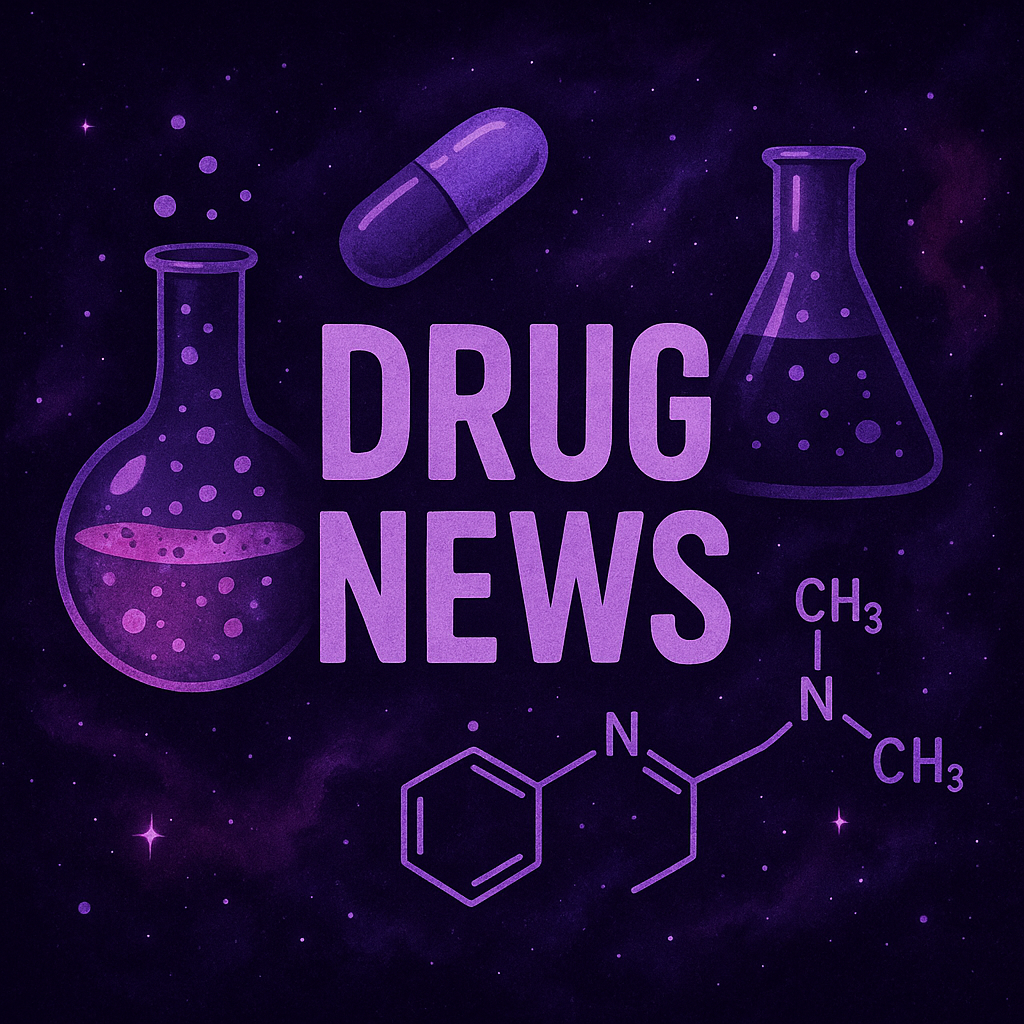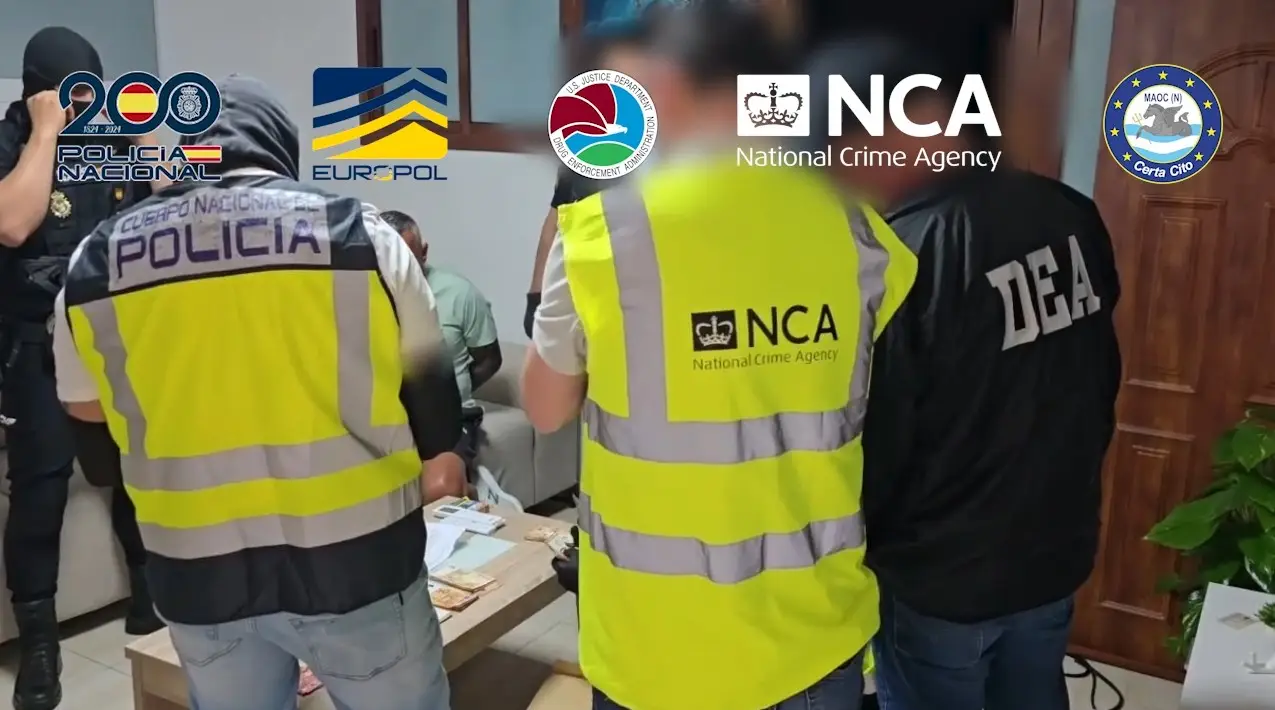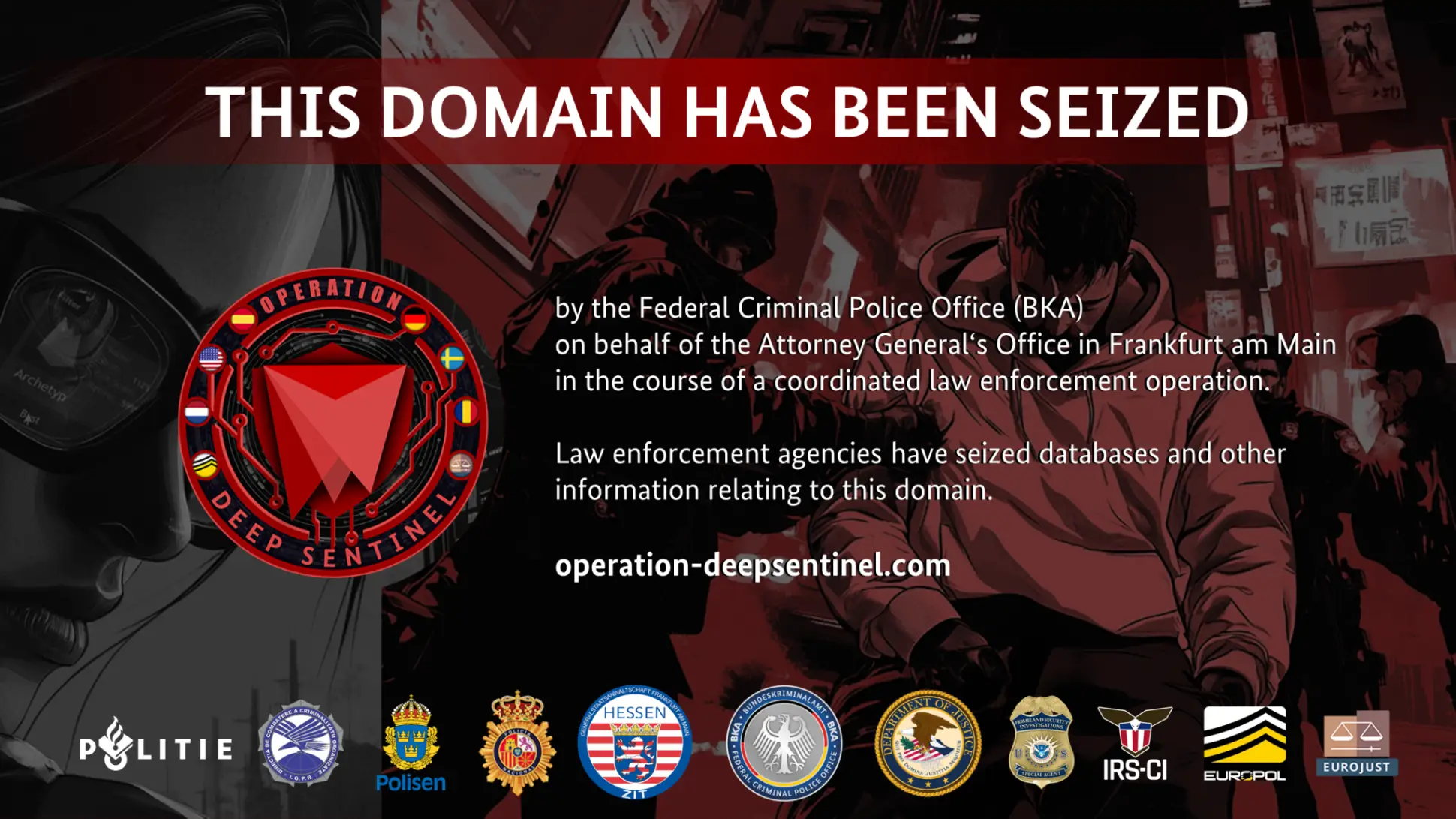On 6 February, a Spanish-led investigation involving Ecuador and supported by Europol, resulted in a major hit on a high-risk drug trafficking network supplying cocaine to the EU. To support the field activities on the action day, Europol deployed two experts to coordination centres set up in Marbella, Spain and Quito, Ecuador. Europol also funded the deployment of two Spanish investigators to Ecuador to enable further coordination between the national authorities on the ground in Ecuador and Spain.
The joint action day in Spain and Ecuador led to:
31 arrests (13 in Spain and 18 in Ecuador);
2 High Value Targets arrested;
66 location searches (22 in Spain and 40 in Ecuador);
Seizures included: 25 vehicles, 10 firearms, electronic equipment estimated at about EUR 13 million and almost EUR 3 million cash in various currencies, including euros;
Property frozen for a total value of about EUR 48 million (EUR 12 million in Spain and EUR 36 in Ecuador).
Tonnes of cocaine shipped under fruit cover
Law enforcement authorities initiated an investigation into an Italian businessman of Argentinian origin residing in Marbella. Further investigations revealed that these companies were used to conceal both criminal activities and financial transactions. Authorities identified the businessman's criminal association with an Albanian national based in Ecuador. The Albanian national orchestrated the importation of cocaine from Colombia to Ecuador and its subsequent distribution to the EU. Operational information indicates that the businessman had a contractual agreement with Colombian suppliers to receive 4 tonnes of cocaine monthly in Ecuador.
The organisation employed Ecuadorian fruit companies as a front to import cocaine into the EU, utilising various shipping methods. Frequently, smaller quantities of cocaine were concealed within banana shipments, ranging from 15 to 40kg. Despite the varying quantities, the company consistently denied any involvement in the trafficking activities. The organisation arranged the transportation of the large cocaine shipments from the port of Guayaquil towards the port of Algeciras and other European ports.
During the course of the investigation, law enforcement authorities in Albania, Belgium, Ecuador, Netherlands and Turkey seized several sizable shipments of cocaine totalling 3.2 tonnes. The leader of the criminal network played a pivotal role in laundering the criminal assets through investing in legal businesses in Spain. He managed several companies, including one focused on the production and importation of bananas from Ecuador to the EU, as well as sports centres in Marbella, commercial centres in Granada, and multiple bars and restaurants. Many of his main associates had strong ties to the Western Balkans and handled the distribution network, which was widespread across Europe.
The operation targeted the two leaders (High Value Targets) of this criminal network. Both leaders had been orchestrating the drug trafficking and laundering the substantial criminal proceeds into the legal economy through the purchase of property, luxury vehicles and goods. So far, investigators have connected the targets to financial transactions totalling EUR 48 million across Ecuador and Spain.
Europol facilitated the exchange of information and provided support during the course of this joint investigation. Europol also provided operational analysis, operational intelligence and coordinated operational activities.
Europol’s Executive Director Catherine De Bolle said:
Europol initiated this cooperation with Ecuador, one of the main transit hubs for cocaine shipments to the EU. The common efforts to combat these large-scale criminal activities resulted in the signature of a Working Arrangement between Europol and Ecuador in October 2023. This new framework enhances the cooperation between law enforcement authorities from EU Member States and their Ecuadorian counterparts in the joint fight against multinational drug cartels.
Funding through EU financial mechanisms
Officers from the Spanish National Police and Spanish Customs, supported by Europol, carried out these joint operations in partnership with Ecuador in line with the EU Security Union Strategy. The EU Security Union Strategy focuses on four main points: a future-proof security environment, tackling evolving threats, protecting Europeans from terrorism and organised crime, and a strong European security ecosystem. To reach these goals, the European Commission’s DG HOME, EU agencies and dedicated EU funding including the Internal Security Funds, support EU Member States in tackling criminal threats through coordinated operations that target criminal networks and their business models. The actions conducted within this framework have received co-financing from the European Union as part of the support provided to EU Member States in combating criminal networks posing the most significant threats to the safety and security of EU citizens and the EU as a whole.
High-value fugitive arrested | Update 23 June 2025
A high-value fugitive, on the run since the action day in February 2024, was arrested in Abu Dhabi in May of this year. He is believed to be the leader of the criminal organisation.
His arrest was made possible through close cooperation between the Spanish National Police and the authorities of Ecuador and the United Arab Emirates, with support from Europol and INTERPOL.
The fugitive is suspected of personally coordinating the group’s drug trafficking operations — maintaining direct contact with Colombian cocaine suppliers and overseeing the transport and safekeeping of the illicit goods from Colombia to Ecuador. There, his associates, who held influence at the port of Guayaquil, loaded the drugs into containers operated by fruit-exporting companies under his control.
Once the drug-laden containers reached European ports, the fugitive allegedly resumed command, instructing trusted contacts to extract the cocaine, store it, and arrange its onward distribution to final buyers.
Spanish judicial authorities have now requested his extradition so that he can face proceedings in Spain.
- 0 comments
- 491 views




